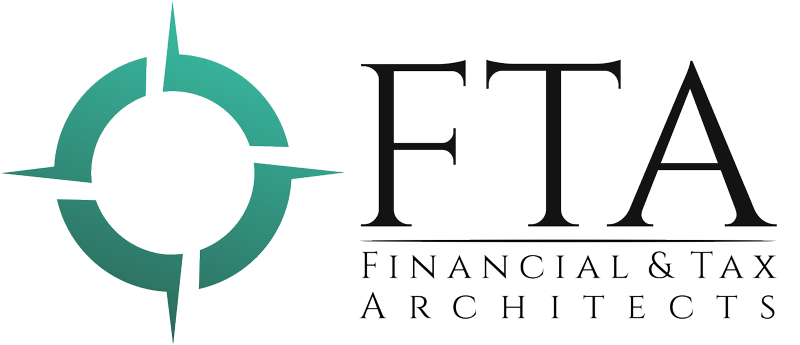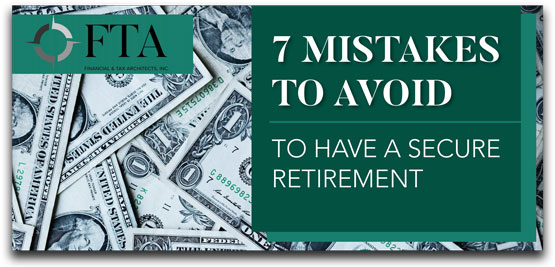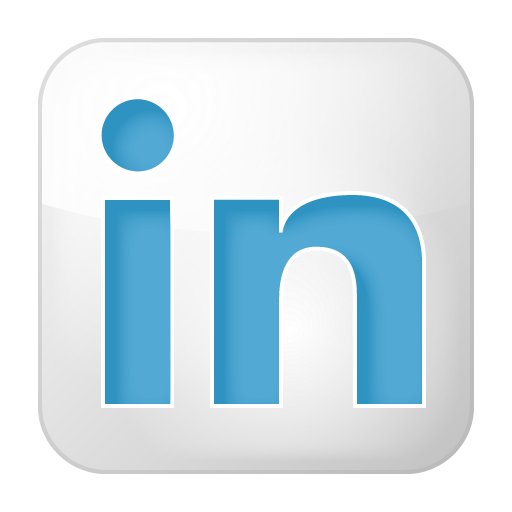Rollover Pros and Cons – What Is a Rollover and Should You Do It Before You Retire?

4 MIN. READ
As you prepare for retirement, you have many questions to answer to ensure you find financial success. One of those considerations is whether you should roll over your retirement plan. To make things easier, we at Financial & Tax Architects have compiled a rollover pros and cons list to help you understand what will work best for you.
A quick background
A rollover is a transfer of financial assets from one retirement account to another, typically from a 401(k) to an individual IRA.
When leaving the employment of a company, the employee may rollover the assets in their company 401(k) plan to their individual IRA account. Some employers allow new employees to rollover the assets from a previous employer plan into its plan. Other rollover options are a self-distribution rollover or a trustee-to-trustee transfer. When taking a self-distribution, you are required to deposit the proceeds into another retirement account within 60 days or face potential tax consequences.
There are rollover pros and cons to every strategy. You should consider each of them carefully before taking any action.
Pros of rollovers
There are plenty of good reasons that you might want to rollover retirement assets from one plan to another:
- Simplify your finances. The Bureau of Labor Statistics published a study showing that the average person holds 12 jobs over their lifetime. Potentially, that could leave you with 12 separate 401(k) accounts, each held in a different location with different fees and investment options. Eventually, each would be subject to retirement account requirements. Rolling these various accounts over into one IRA can greatly simplify your financial life. You can see those funds as a whole for investment purposes and, when the time comes, required minimum distributions (RMDs) will be a lot easier to manage.
- Access more options. A 401(k) plan almost always has a limited selection of investments available to plan participants. As you get older (and more knowledgeable in the markets), you may want access to more options for diversification and risk management. The rollover will also mean that all of your assets held in mutual funds have access to the same mutual funds for ease of obtaining breakpoint and accumulation discounts.
- Reduce tax bills. You can rollover your assets into a non-qualified account or a Roth IRA, pay any taxes due now and continue to make post-tax contributions to the account. This can substantially reduce your tax bills during retirement when, presumably, you will have less income.
- Streamline estate planning. You may also have estate planning advantages in rolling over your 401(k)s since all of those assets will be together when you figure out how to distribute your legacy.
Cons of Rollovers
As with anything, the pros come with their cons. Thus, there are also solid reasons not to transfer your existing 401(k) assets:
- Transaction limits. Some accounts only allow for one transfer a year, so you want to think carefully before acting.
- There are often transaction fees associated with a rollover and there may be tax implications as well.
- IRA rollover disadvantages. 401(k)-to-IRA rollovers have some drawbacks. You can’t borrow from your IRAs, you may pay higher fees than you did for your 401(k) and you probably won’t have the kind of guaranteed fund investment options that may have been available in your 401(k).
- Immediate expenses. If you have any outstanding 401(k) loans, you will have to repay them to move the assets.
- Consequences to your portfolio and taxes. Access to all of those new investment options has its own downside. You’ll probably need to reconstruct your portfolio, which can be risky without an advisor. Plus, if you moved to a non-qualified account, you may experience some tax consequences from doing so.
A final note: Perhaps the worst thing to do is just take a cash distribution – unless you have specific plans for that money. Doing so reduces your retirement assets and can have rather hefty tax consequences, especially if you’re under 59.5.
Get expert advice on rollover pros and cons
Think carefully about how to handle your existing 401(k) accounts as you approach retirement or change jobs. The decisions you make can have significant consequences and are often irrevocable.
Consider working with us at Financial & Tax Architects for advice when making these important decisions. We can help you achieve your retirement goals by weighing rollover pros and cons.






